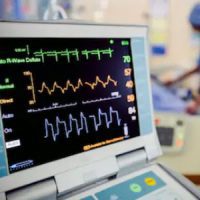
As students head back to class and get started with sports practices, many South Florida parents have expressed concern about their children’s high physical activity levels. Given the region’s temperatures and humidity, it’s understandable to worry about heat stroke, exhaustion, and even worse medical conditions. In fact, a July 27, 2019 article published by the Miami Herald confirms parents should consider an additional screening when taking their kids for the required physical before playing sports: An Electrocardiogram, ECG for short – or EKG as a nod to the test’s German roots.
You should have a conversation with your health care provider about the specifics, and talk to a Florida personal injury lawyer if you want more information about the legal side of things. Some answers to common questions about EKGs should also be informative.
What does an EKG do? An EKG measures the electrical impulses within the heart and collects data, which enable the detection of any irregularities. Anomalies may indicate signs of heart disease, including potential heart attack, arrhythmias (irregular heartbeats) and heart failure. An EKG can also identify whether a person is at risk for sudden cardiac arrest.
Why would my child benefit from an EKG screening? This simple test can alert children and their parents about potential health threats before they become major medical issues. Student athletes are at risk because of their physical activity and training, particularly in the late summer heat that’s common in South Florida – which hits at the same time as many high school sports begin regular practice sessions.
Besides student athletes, both children and adults should get an EKG if:
- You have a family history of increased heart attack risk;
- You get dizzy, faint, or experience general weakness while participating in sports or other activities that lead to an elevated heart rate for extended periods;
- You suffer shortness of breath or chest pain when physically active.
Will my child be unable to participate in sports? Experts say that the majority of athletes will likely be cleared to play in most sports. However, an EKG may reveal some abnormality or cause for concern in around 15 percent of students. In some of these cases, the individual will not be able to participate. Many others will be able to compete, as long as they properly manage their health in accordance with a physician’s care plan.
What if my child is determined to be at risk of harm? Of the 15 percent of EKG screenings that reveal a problem, there are additional tests to determine exactly what it is. As a next step, your physician may suggest an Echocardiogram (Echo). This screening is similar to an ultrasound and provides practitioners with a picture of the heart, including valve any valve weaknesses, issues with vein structure, and muscle thickness.
Trust a Florida Personal Injury Attorney to Protect Your Rights
If you have questions about the benefits of an EKG for student athletes, consult with a health care provider. However, if you have concerns about related legal issues, you can trust an experienced Florida personal injury lawyer. For more information, please contact Freidin Brown, P.A. Schedule a free consultation with one of our pediatric injury lawyers in Miami or Fort Myers, FL.




